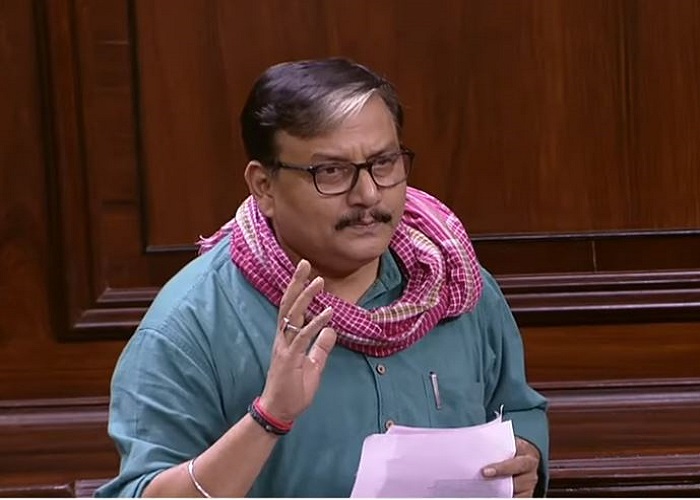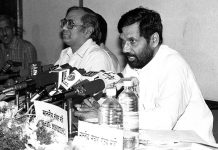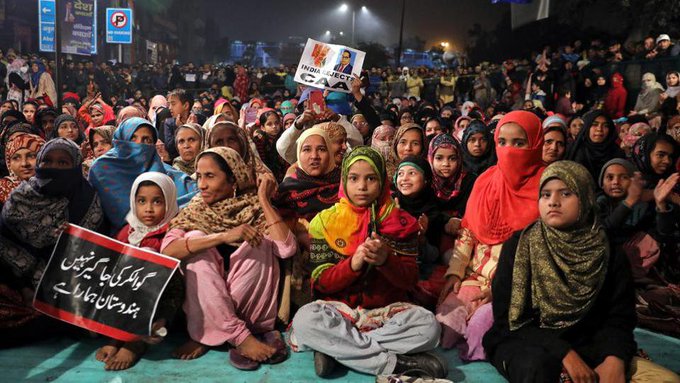In a remarkable address in the Rajya Sabha, RJD leader Prof. Manoj Kumar Jha said that the idea of restricting people to their homes for the fear of the spread of coronavirus, although necessary could not be followed by millions of Indians who worked in the unorganised sector without a secured livelihoods. He urged everyone to look beyond the rich and the middle classes and connect with the marginalised and downtrodden sections of the Indian society, which made a living only by working on a day to basis as contractual labourers, wage earners, street vendors and in the unorganised sectors.
They earn in the day and eat at night, how can such people be asked to sit back in their homes despite the threat of the coronavirus? He asked why PM Modi’s public address about the imposition of a “Janta Curfew” on Sunday did not have any message for this section of the population or the already fragile healthcare infrastructure in the country.
He also made a satire on the concept of “social distancing” that is being used in times of coronavirus to urge people to avoid social gatherings. He said that due to an already fragmented and hierarchical society where the caste system was still quite powerful, people were already used to “social distancing”. He said that other words could have been used in such times such as “physical distancing, social solidarity” or “social proximity, physical distancing.”
Prof. Manoj Kumar Jha also raised concerns over the decline in the Indian economy and its inherent inequality and aloofness to the downtrodden sections of the society. Emphasising on the significance of job generation for the youth of the country and creating better employment opportunities for India’s young population, he said that under the current economic structure, the poor had been deleted from the public imagination.
He also spoke on the implications of demonisation on the Indian economy and how it had brought it to an “irreversible standstill”.
He also said that according to global estimates around 250 crore jobs will be lost in the world due to the coronavirus and that the government’s perspective of looking at the pandemic was centred on a very elitist and urban worldview and did not take into account the lives of ordinary/marginalised Indians who comprised the bulk of the Indian population.
He appealed for the increment of minimum wages in the MGNREGA, a decision against the selling of public enterprises such as MTNL etc.
He also said that while the country was finding itself in extremely difficult conditions, it was very important for both the government and the media to work hand in hand for the betterment of the country.
He said that today’s media did not have space for genuine public issues like education, employment or healthcare and engaged in what thinkers like Adorno and Horkheimer called “mass deception”. He said that all concerned people should unanimously stand for what is true to the demand of the country and for the wellbeing of its people.














